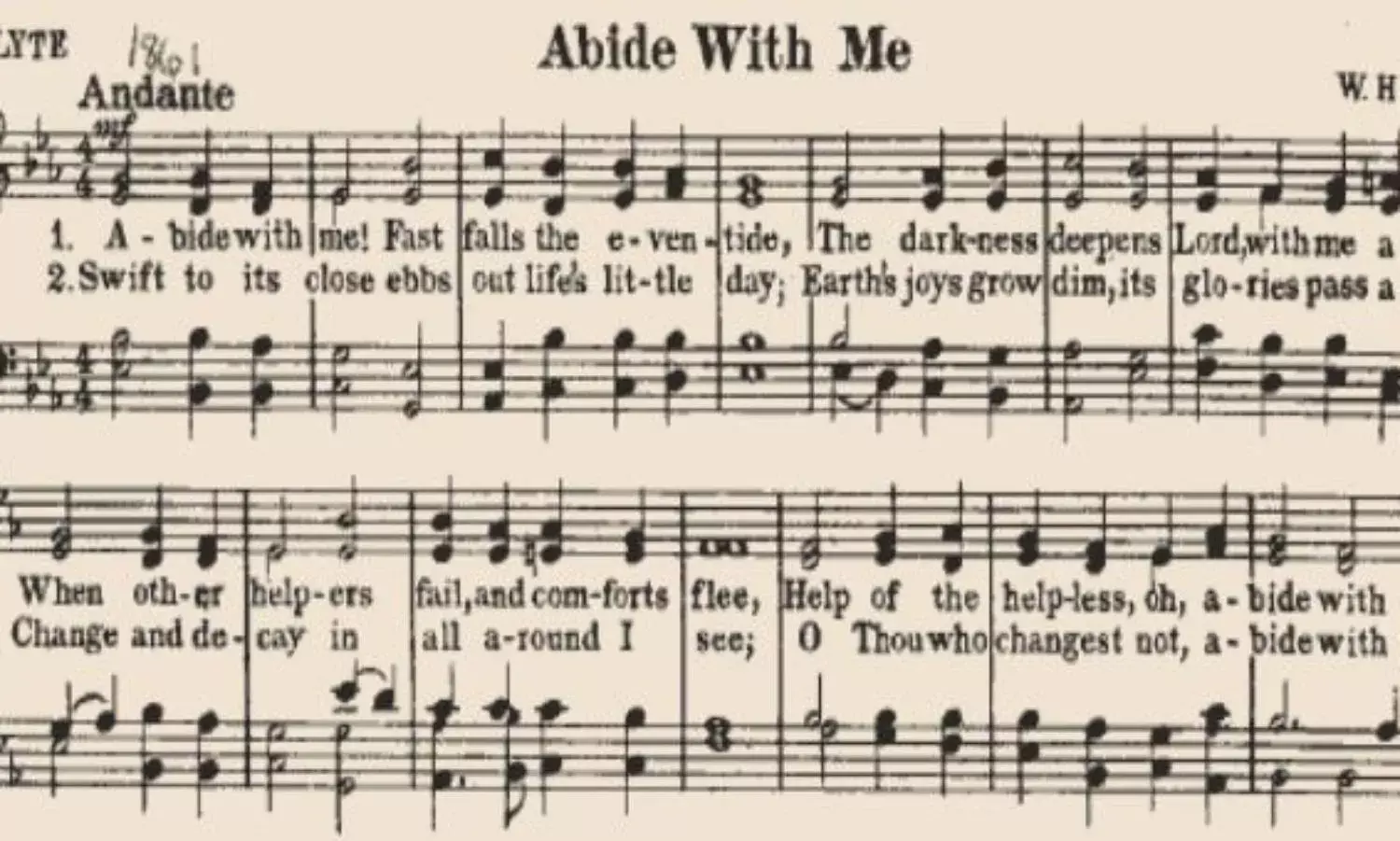Christian Hymns Are a Favourite As I Am a Devout Hindu : Gandhi
Abide with Me

Thankfully good sense prevailed and the Modi Government, under pressure, has decided to rescind its decision to drop "Abide with Me" from the Beating Retreat parade of 2020. It had planned to introduce "Vande Mataram" in place of the beautiful hymn that has defined military tradition since 1950 and resonated across generations.
It is indeed shocking that such a convoluted decision could be taken at all. It was one of the favourite hymns of Mahatma Gandhi, the father of our nation, whose 150th birth anniversary is being celebrated these days. He included it in his collection famously known as Ashram Bhajanabali, the hymns of Sabarmati Ashram. The outrageous decision to exclude it from Beating Retreat was an affront to Gandhi who despite being an ardent Hindu, included the verse in his prayers selected from diverse faiths.
Even his famous prayer Raghu Pati Raja Ram, Iswar Allha Tero Nam has not been spared. Rama Guha in his article "Godse Worship Goes Mainstream in India" published in the Hindustan Times dated June1, 2019 wrote that in the early 1990s when the illustrious follower of Gandhi Dr. Sushila Nayar participated in a meeting in Ayodhya to promote communal harmony and recited Gandhi's much loved prayer she was stopped by protestors as she sang Ishwar Allah Tero Naam. She tried to allay their apprehensions and assure them that she and her associates were representing the legacy of Mahatma Gandhi but the protestors countered her aggressively by asserting that they represented the legacy of Nathuram Godse.
That episode narrated by Guha, and the initial decision now, sadly underline the point that Gandhi’s prayers upholding communal harmony and unity are not acceptable to those who believe in defining India in terms of one religion and imposing a monolithic narrative. This negates pluralism and diversity that remain central to the pursuit of spirituality. A narrow and exclusionary outlook actuating people to promote majoritarianism at all levels, including that of music which Gandhi defined in terms of rhythm, harmony and order.
In fact, Mahatma Gandhi himself in a letter to a lady Gulchen Lumsden wrote on February 10, 1933 that her information obtained from Sir Henry Lawrence that "Abide with Me" was one of his favourite hymns was correct. He wrote, "Sir Henry Lawrence was right when he told you that “Abide with me” was one of my favourite hymns. Though I am a devout Hindu, or even because I am a devout Hindu, I have no difficulty in appreciating the devotional hymns of other religions, and having had intimate contact with many Christians I came to appreciate some of the hymns even as a youngster. You will perhaps be glad to know that among them “Lead,Kindly Light” is the most favourite. But there are others also which you do not need to know".
The clear stand taken by Gandhi that he chose "Abide with Me" as his favourite hymn in spite of his identity as a devout Hindu or because he considered himself as a devout Hindu offers a vital lesson to those who perpetuate exclusion in the name of Hindutva which of course is a negation of Hinduism.
The initial decision to drop "Abide with Me" from Beating Retreat affirmed the assertion of the ideal of exclusion in the name of Hindutva and it was evident in a more pronounced manner when Vande Mataram was included in its place. There is no harm in including Vande Mataram but to do so at the expense of "Abide with Me" signals a clear demonstration of an exclusionary outlook. To do so at a time when the country is celebrating the 150th birth anniversary of Mahatma Gandhi constitutes an attempt to negate the expansive vision and worldview of Gandhi.
In 1930 when he was re- requested by Meeraben to establish a prayer hall in Sabarmati Ashram and put an idol there for the purpose of offering prayers Gandhi rejected this saying that they all offered prayers in the open air, the ceiling of which constituted the sky and all four directions- east, west, north and south- constituted its four walls. And the objective of prayer offered in such a prayer hall was to transcend the barriers of religion, caste, nationality and all narrowness.
We need such an inclusive approach to safeguard our diversity in all fields be it religious, social, political or economic.



